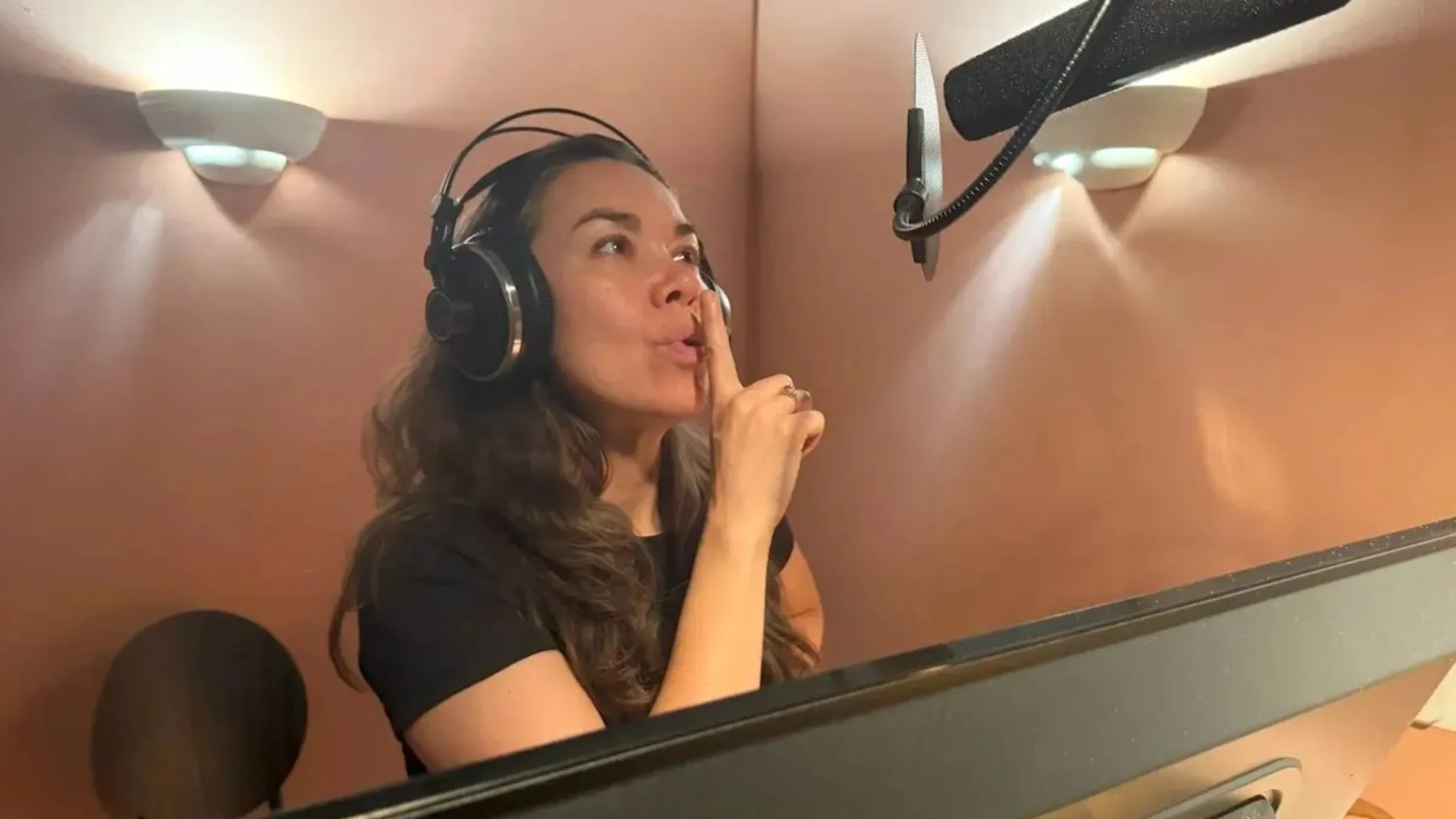
Okay, so I’m really excited about this – Yuri Lowenthal and Tara Platt, you probably know them from tons of games and animations, are teaching a course on Kajabi about voice acting. These two are seriously pros – they’ve been doing this for years and have a huge amount of experience. They’ve seen how the whole voice acting world has changed, and they’re sharing all that knowledge. It’s awesome for anyone trying to get into the industry, because they really know their stuff.
That’s why Yuri Lowenthal and Tara Platt have been eager to share what they’ve learned, even collaborating on the book Voice-Over Voice Actor in 2010. They’ve long wanted to expand their teaching, but balancing busy careers and family life made it difficult. Kajabi offered the ideal solution, allowing them to create a course that fit their schedule and reach students worldwide. In an interview with Comicbook.com, they talked about how they built the course, what it takes to have a lasting career in voice acting, and the need to be adaptable in this dynamic industry.
Learning From Experience

Yuri Lowenthal and Tara Platt’s new course will be delivered through pre-recorded lessons and include assignments to help students practice what they learn. It’s not a live course, and that was intentional. They explained that they decided to create the course now not because they suddenly had more free time, but because they knew it would never happen if they waited for the perfect moment. Lowenthal said, “If we waited for the time and the availability, it would never happen.”
Platt added that they originally wrote their book, Voice-Over Voice Actor, fifteen years ago because people were constantly asking them questions, and there wasn’t a good resource available. “So we wrote it ourselves, because that’s what we do,” she said. They updated the book with an extended edition, and continued to receive requests for lessons. While they occasionally participated in friends’ classes or workshops, they were too busy to create their own comprehensive course. The discovery of the Kajabi platform finally provided the solution, allowing them to share their industry experience with aspiring voice actors.
The program offers a wide variety of courses designed to be completed independently. All the educational materials are pre-recorded videos, allowing students to learn at their own pace and on their own schedule. The class includes over nine hours of video content, divided into 17 modules with lessons, assignments, and videos. The creators designed it this way to be flexible and accessible, recognizing that many people have busy or unpredictable schedules and can’t commit to fixed class times.
The decision to take this approach came from a belief in giving people control and flexibility. As one example, a single mother could learn at her own pace, perhaps while her children are asleep. This allows individuals the freedom to participate on their own schedule. Based on their experiences as parents, Lowenthal noted that people perform better when they are trusted and given responsibility. Platt agreed, adding that this principle applies to everyone.
People are increasingly taking ownership of their learning, understanding that their effort directly impacts their results – much like in a college course where you get what you put in. This shift also mirrors the growing trend of remote learning, especially in higher education. The idea is that if bringing everyone together physically isn’t possible, providing access remotely is the best alternative.
How To Sustain A Career In Voice-Acting

Lowenthal and Platt are long-time veterans of the entertainment industry, constantly refining their skills to adapt to new challenges. They’ve found that voice acting, particularly for animation and video games, is a field of continuous learning and innovation due to rapidly evolving technology. As Lowenthal explains, “The industry is always changing, and we improve by building on our past experiences.” He adds that they initially focused on traditional TV and film work before discovering the exciting possibilities of voice acting, which opened up a whole new creative path.
I loved cartoons and video games as a kid, and even when I started working in entertainment, I never thought of it as a traditional job. Realizing it could be a career was a big surprise and really changed things for both of us. It’s interesting because our careers have evolved – we began with theater, moved into TV and film, and then discovered voice acting. Now, with more performance and motion capture technology, it’s becoming common to hire actors to do both the voice and the physical performance. In a strange way, that’s brought us back to the roots of theater – we’re now able to use our whole bodies on a motion capture stage, which feels like being back on a set or stage. This full-circle journey has been unexpected, and we’ve had to adapt our teaching methods to reflect these changes.
The voice acting industry is constantly changing, and even in recent years, the way actors work has evolved. Platt points out that it’s no longer just about technical advancements; the collaborative process with directors has also shifted. He used to believe that actors needed to present a perfect, polished performance, and while preparation is still important, he’s learned a lot from making mistakes. He loves the idea, inspired by the book The Beautiful Oops, of embracing imperfections and finding ways to use them creatively. Instead of hiding flaws, he now asks how they can become strengths and contribute to growth as an actor. He believes bringing a full range of qualities – even the less polished ones – makes for more interesting work. Discovering the value of those ‘oops’ moments has been a rewarding part of his journey.
Many believe embracing authenticity is crucial for success in voice-over work today. As Platt explains, “The current opportunities favor this kind of thinking.” He notes that with the rise of diverse games and shows, there’s a growing demand for genuine, relatable voices – less emphasis on perfection and more on a human, imperfect, and varied approach. This shift, he says, is reflected in the projects they’re undertaking.
Lowenthal and Platt’s successful voice acting careers are built on their adaptability. Between the two of them, they’ve performed in hundreds of projects, even working together on series like Insomniac’s Spider-Man. According to Platt, being flexible is crucial for longevity in the industry. They’ve found success by being willing to try all aspects of voiceover work, rather than specializing in just one area. “Don’t limit yourself to just one type of project,” Platt advises. “Be versatile and open to everything. The lines between different types of voice work—like video games, animation, and audiobooks—are blurring, and projects often evolve. It’s important to understand the bigger picture and be prepared for anything.”
The impact of AI is also changing the entertainment industry, and even those initially opposed to it are recognizing its growing presence. Lowenthal, a prominent figure in the 2024-2025 SAG-AFTRA video game strike, admitted his first instinct was to reject AI entirely, but he understands the technology is progressing and being adopted by studios. He’s particularly concerned that AI will initially be used to replace actors in smaller roles, like those performing motion capture for non-player characters (NPCs) and background performers. He points out that these roles are often how actors gain experience and hone their skills between larger projects, and that this is a crucial part of the industry he hopes to address with his teaching. He believes his class can help fill the need for training in these areas.
It’s impossible – and pointless – to try and halt technological progress. As Tara pointed out, adaptability is key. By learning to work with new technologies, we can better understand and prepare for future changes. Many actors have successfully used technology to advance their careers, finding ways to be empowered rather than exploited. I’m optimistic about this shift. Technology itself isn’t the problem; it’s how it’s used. Exploitative practices can harm people and don’t necessarily improve the final product. Platt agrees, explaining that creativity in voice acting requires combining technology with the skills of actors, writers, and artists – essentially building something new together. Their digital course aims to do just that, leveraging modern technology to allow aspiring voice actors to learn at their own speed.
Voice-Over Voice Actor: The Course is now available through Kajabi.
Read More
- Best Controller Settings for ARC Raiders
- Sony Removes Resident Evil Copy Ebola Village Trailer from YouTube
- Ashes of Creation Rogue Guide for Beginners
- The Night Manager season 2 episode 3 first-look clip sees steamy tension between Jonathan Pine and a new love interest
- So Long, Anthem: EA’s Biggest Flop Says Goodbye
- Dolly Parton to Miss Her 80th Birthday Show at Grand Ole Opry
- Why Jennifer Lawrence Prefers to Film Sex Scenes With “A Stranger”
- Fire Emblem Fans Cannot Miss This Viking Game Next Month
- Untangling Topology: A Lattice Solution to the Framing Anomaly
- EastEnders airs dilemma for Priya Nandra-Hart following Nugget Gulati’s assault in BBC iPlayer release
2025-11-13 22:12